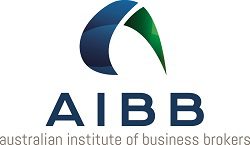The Buying Process
See below the different stages of buying a businessHOW TO BUY A BUSINESS?
FOLLOW OUR STEP BY STEP PROCEDURE
The Buying Process: as we repeatedly stress to buyers who approach this site, we act for the seller under most circumstances and hence it is to the seller that we owe our primary and ultimate obligation.
However this is not to be at the expense of the buyer, as nobody wants to see a buyer buy the wrong business or lose their money because of an investment in small business. The more you understand the process of buying a business and the better informed you are, the more successful the transaction will be for both parties. That is why it is important that a buyer understands the buying process. We believe that it is important for buyers to understand the different steps in the buying process. Working with BCI Business Brokers means you are working with an expert who understands the process, and while the seller is our client and pays our fee, we are looking to facilitate a deal that is a good deal for both parties.
PRELIMINARY
Inquiry and Initial Contact :
You send us an email inquiry or call us after seeing a business on one of our websites or after being contacted directly by us. At this stage we can provide you with broad introductory information about the business but not as much so as to identify the business.
Confidentiality Agreement
You sign or acknowledge online your agreement promising to maintain the confidentiality of all the information provided to you about the business or businesses we discuss with you. It is very important that you pay close attention to this, and indeed you would want the same approach by buyers of your business if it was for sale.
INVESTIGATION STAGE
Providing Information
Once a confidentiality agreement is signed, you will be provided with information. This will usually be by way of information inside our online data room or otherwise provided to you.
Professional Advice
At any stage you should be ready to consult professional advisors or accountants who can help you understand things that may be outside your area of expertise. We also suggest that you endeavour to understand what your professional advisors are doing to make the process of buying a business just a little bit safer for you.
Personal Meeting with Broker
If you wish to pursue your inquiry about the business, we encourage you to make a time to meet the BCI broker handling the business. This will usually be at the Crows Nest offices of BCI but can be at a venue convenient to both prospect and broker.
Inspecting The Business
As you pursue your inquiry, you might want to inspect the business and meet the seller. This meeting can take place either at the business or at our offices. The seller may want this to happen outside the premises of the business so as not to alert or unnerve staff.
NEGOTIATION STAGE
Negotiation to Purchase
At this stage of the process, you might want to start negotiating a purchase. This process is started by you making an offer on the business. The business broker will usually give you an indication as to how negotiable the seller is on price and other terms. Price is only one term of a final agreement and other terms like lease assignment, period of vendor assistance, period and area of non-compete clauses, and terms of payment will be negotiated during this period.
Heads of Agreement and Payment of Deposit
Once you and the seller have come to terms, the business broker will draw up a preliminary non-binding agreement, called a Heads of Agreement. This will contain most but not all of the terms that will be covered in the Contract of Sale. It will cover items such as price and the other terms referred to above under “Negotiation to Purchase”. On signing this document you will also be asked to pay a deposit to demonstrate your commitment to negotiations and bona fides (credentials).
CONTRACT STAGE
Contract of Sale
A contract will be drawn up according to the general terms of the Heads of Agreement. However a contract will be more detailed, containing provisions and clauses designed to protect both parties and cover issues like warranties and other more technical provisions. At this stage you will be asked to provide the details of your legal representatives so that they can be given a copy of this contract.
Exchange of Contract
Once both parties are happy with the terms of the contract, the lawyers will arrange to meet and exchange contracts. Once contracts are exchanged, the deal is sealed.
Between Exchange and Settlement
After exchange of contract the parties prepare for settlement. This can involve gaining consent to assignment from landlord, franchisor or other authority. It can cover formal finance approval as well as anything else that needs to be done under the contract. This is the beginning of the handover.
COMPLETION STAGE
Handover
The time before and after final settlement of the sale is called the handover stage. The seller is usually under obligation to introduce the buyer to all facets of the business. This is part of what the buyer is paying for. These introductions include to suppliers, clients, as well as how to operate the business and anything else that needs to be transitioned during this period. Usually there will be provision for the buyer to start working in the business after exchange and before settlement. And the seller will remain after settlement to further assist. These training and assistance periods are usually short, so that if the buyer wants longer tuition and assistance period that needs to be paid for by the buyer.
Earnout
Sometimes a seller will be asked to stay on in the business to earn what we call an “earnout”. This can be part of the purchase price that is paid after initial settlement, and may or may not be tied to performance of the business. It may just be there to ensure that the buyer stays for this extended period and more fully hand over the goodwill etc.
Settlement of the Sale
Settlement of the sale involves final payment of all monies due on settlement and the handover of the business to the buyer. The buyer then takes the profit of the business and control over its operation.In all cases, seek and take advantage of the advice of your financial and other advisors.







